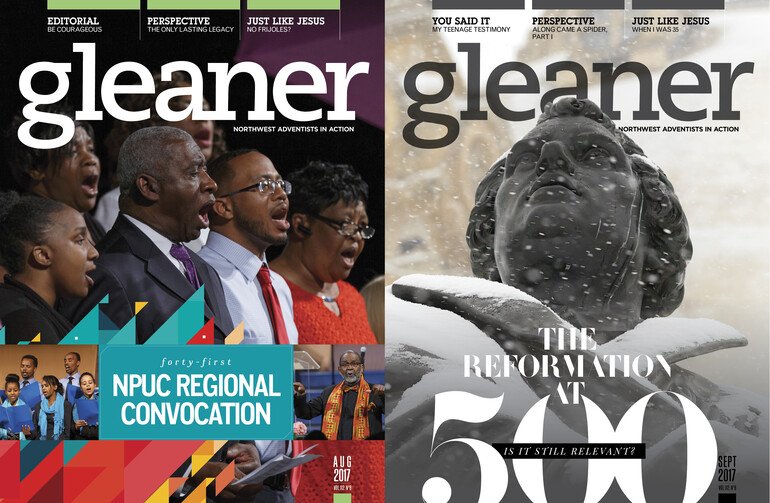English Translation Needed
I do not understand most Spanish. And I would venture that some Spanish-speaking members do not understand English very well. Would it be possible to print the Spanish news page on one side of a page opening and then print the exact same thing, including pictures and all, on the facing page, in English? That would do at least two things: 1) Those of us who speak English would be able to know what our Spanish brothers and sisters are doing in their churches, and 2) we both would have the opportunity of learning, at least in a limited way, the other's language, by comparing the sentences on the two pages. I realize that it would take a little extra work in translating each month, and it would use an extra page, but I can visualize very positive benefits from that simple addition.
Edwin K. Gibbons, Madras, Ore.
Martin Is On Point
I wanted to thank you for printing Martin Weber's Perspective article ["Is the Church Going Through?"] in your September issue. His view is "on point" yet rarely publicly stated.
Jennifer Houghton, Sherwood, Ore.
Go Beyond Age Classifications
I recently read an article by John Freedman in the August edition of the Gleaner entitled "Be Courageous." This article in some ways resonated with me. Sociologists and psychologists tend to classify young adults as persons between the ages of 18 and 35 (or 40). As someone who is 31 years old, I suppose I qualify. However, I have recently become a bit turned off by this classification when in church. Not too long ago, I relocated to a city with several SDA churches. These churches had both adult Sabbath School and young adult Sabbath School classes. It wasn't as if there was a senior adult class and a young adult class. The other class did not have a qualifier in front of it. It left the impression that there was a real adult class and that people my age belong in a "sort of" adult class. I don't think all young adults are unhappy with this, but I think it is damaging to our church as a whole. We miss opportunities to form relationships when we encourage an environment that separates. We miss opportunities to learn from each other. It's easier to stereotype and misunderstand others. I can't help but feel that 30 or 50 years ago I would simply be treated as an ... adult, and be judged by my individual character and maturity level. I encourage our church, that rather than seeking out ways to keep certain types of members in our church, we seek to strengthen the body as a whole by reaching out and getting to know the individual, whatever their age may be.
Cierra Neiwert, Spokane, Wash.









